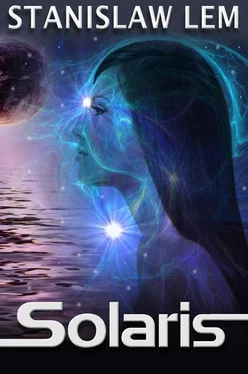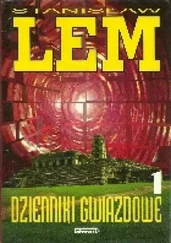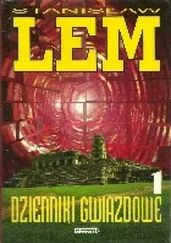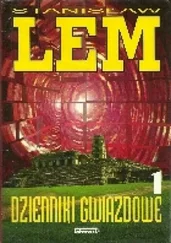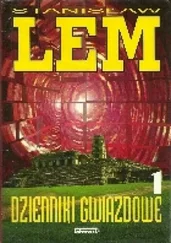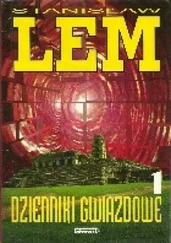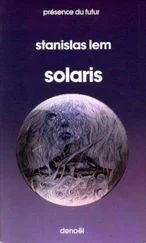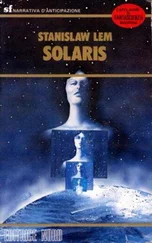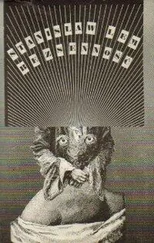But could such a critical experiment be designed? To begin with I thought not, because my sick brain (if indeed it was sick) would produce any illusion I required of it. After all, it’s not just in sickness; even in the most ordinary dream we find ourselves conversing with people we do not know in our waking life, asking these dream figures questions and hearing their answers. When this happens, even though the figures are in fact only products of our own mind, parts of which have temporarily become detached and given a fake independence, we still don’t know what words they will utter until, in that dream, they speak to us. Yet in reality the words are concocted by that other, separated part of our own mind, and so we ought to know them at the moment we think them up and put them in the mouth of a fictional character. Whatever I might plan and carry out, then, I could always tell myself I was acting the way we act in dreams. Neither Snaut nor Sartorius needed to even exist in reality, and so asking either of them questions was pointless.
It occurred to me that I could take some powerful medication, like peyote for example, or something else that produces hallucinations or graphic visions. Experiencing such things would prove that what I had taken really existed and was a part of the material reality surrounding me. But, I thought further, that too would not be the critical experiment I was after, because I knew how the substance (which I of course would have to select) ought to act on me, and so it could also be the case that both the taking of the medication and the effects it caused were equally products of my imagination.
I was already thinking there was no way out of the vicious circle of madness — after all, no one can think with anything but his brain, no one can be outside himself to check whether the processes taking place in his body are normal. Then suddenly I was struck by an idea that was as simple as it was apt.
I jumped up from the pile of parachutes and ran straight to the radio station. It was empty. I glanced at the electric wall clock. It was coming up to four in the agreed-upon night of the Station, because outside a red dawn was breaking. I quickly turned on the long-distance radio equipment, and as I waited for the lamps to warm up, in my mind I went over the various stages of the experiment.
I couldn’t remember the call signal for the automatic station of the planetary Satelloid, but I found it on the bulletin board over the main console. I called it up in Morse code; eight seconds later came the response. The Satelloid, or rather its electronic brain, reported in with a repeated rhythmic signal.
I requested it to tell me which meridians of the galactic canopy it was passing at twenty-second intervals as it orbited Solaris. I asked for figures to the fifth decimal place.
Then I sat down and waited for the response. It came ten minutes later. I tore off the paper printout with the results, stuck it in a drawer (making sure I didn’t so much as glance at it first), then went to the library and brought back large-scale sky maps, logarithmic tables, the almanac of the satellite’s daily movements, and a few additional books. I then proceeded to figure out my own answer to the same question. It took me almost an hour to set up the equations. I don’t remember the last time I performed such difficult computations — it was probably in school, during my practical astronomy exam.
I carried out the work on the Station’s huge calculator. My reasoning was as follows: from the sky maps I ought to derive figures that were not exactly the same as those provided by the Satelloid, since the Satelloid was subject to complex perturbations as a result of Solaris’s gravitational pull, of its two mutually orbiting suns, and also local variations in gravitation caused by the ocean. When I had both sets of figures, those provided by the Satelloid and those calculated theoretically on the basis of the sky maps, I’d correct my own reckonings. At this point the two groups of results ought to match to the fourth decimal place; discrepancies would remain only in the fifth decimal place, as being caused by the unpredictable influence of the ocean.
Even if the figures the Satelloid provided were not real but a product of my own crazy mind, they still couldn’t match the other series of numbers — even if my brain was sick, it would not be capable under any circumstances of the computations performed by the Station’s calculator. Such a thing would have required months of work. So then, if the figures tallied, the calculator existed in reality and I was actually using it, not just imagining I was.
My hands were trembling as I took the telegraphic printout from the drawer and spread it out next to the other, wider sheet from the calculator. Both lists of figures matched as I had predicted, to the fourth decimal place. Discrepancies appeared only in the fifth.
I put all the papers into the drawer. So the calculator existed independently of me; this meant that the Station and everything on it was also real.
I was about to close the drawer when I noticed it was filled with a whole wad of papers covered in hasty calculations. I pulled them out; a single glance was enough to see that someone else had already carried out an experiment like mine, the only difference being that instead of data from the star canopy this person had asked the Satelloid for information about Solaris’s reflectivity at forty-second intervals.
I was not mad. The last ray of hope had faded. I turned off the transmitter, finished what was left of the bouillon in the flask, and went to bed.
I’d carried out my calculations in a kind of silent doggedness that had been the only thing keeping me on my feet. I was so dazed by exhaustion that I couldn’t figure out how to set up the bunk in the cabin; instead of releasing the top latches I just pulled on the rail, and all the bedding fell on me. When I finally got it down, I tossed my clothes and underwear on the floor and, barely conscious, dropped onto the pillow, which I hadn’t even properly inflated. I don’t know when I fell asleep; the light was still on. When I opened my eyes I had the feeling I’d only been sleeping a few minutes. The room was filled with a cloudy red glow. I felt cold and I felt fine. I lay naked outside the covers. Across from the bed, by the window, which was half covered by the shades, someone was sitting in the light of the red sun. It was Harey, in a white summer dress. Her legs were crossed, she was barefoot, her dark hair was tied back; the sheer material was taut over her breasts. Her dangling arms were tanned to the elbows; she sat motionless, looking at me from under dark eyelashes. I gazed at her for a long time, entirely calm. My first thought was: “I’m glad this is one of those dreams where you know you’re dreaming.” All the same, I’d have preferred her not to be there. I closed my eyes and began to wish this intensely, but when I opened them again she was still sitting there. Her mouth was set in the way it always used to be, as if she was about to whistle, but her eyes weren’t smiling in the slightest. I recalled everything I’d been thinking about dreams the previous evening before I fell asleep. She looked exactly like she had the last time I saw her alive. At that time she’d only been nineteen years old; today she would have been twenty-nine, but naturally she hadn’t altered — the dead remain young. She had the same eyes that were surprised at everything, and she was looking at me. I’ll throw something at her, I thought, but though it was only a dream, I somehow couldn’t bring myself to throw objects at a dead woman.
“You poor little thing,” I said. “You’ve come to visit me, huh?”
I got a little scared, because my voice sounded normal, and the whole room and Harey — it all looked as real as could be imagined.
Читать дальше
